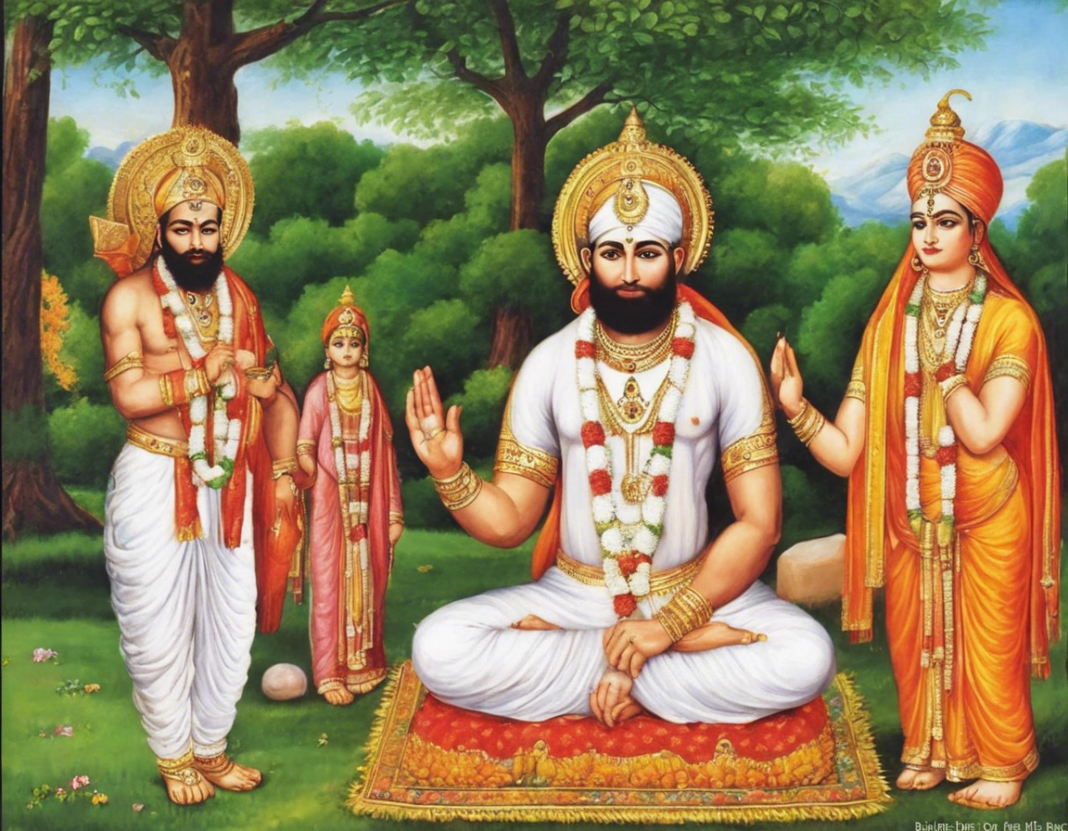Kabir Ke Dohe: Unlocking the Essence of Spiritual Wisdom
Introduction:
Kabir Ke Dohe are iconic couplets composed by the revered Indian mystic poet, Saint Kabir. Born in the 15th century, Kabir’s timeless verses continue to resonate with people seeking spiritual guidance and universal truths. The simplicity and depth of Kabir’s Dohe have transcended centuries, touching the hearts of countless individuals. In this article, we delve into the profound meaning behind some of Kabir’s most significant Dohe, exploring their relevance in the contemporary world and understanding their significance in Hindi.
The Life and Influence of Kabir:
Kabir was a unique figure who bridged the gap between Hinduism and Islam through his poetry. Born to Hindu parents but raised by a Muslim family, Kabir’s verses reflect a deep understanding of both traditions. His teachings emphasized the importance of love, unity, and devotion to a higher power beyond religious divides. Despite his humble background as a weaver, Kabir’s spiritual wisdom attracted disciples from all walks of life.
Exploring the Philosophy of Kabir Ke Dohe:
Kabir’s Dohe are characterized by their simplicity and profundity. Each couplet is packed with layers of meaning and universal truths that are as relevant today as they were centuries ago. Through his Dohe, Kabir addresses fundamental aspects of human existence, such as the nature of reality, the impermanence of life, the importance of self-awareness, and the pursuit of spiritual enlightenment.
Themes in Kabir’s Dohe:
1. Bhakti (Devotion): Kabir emphasizes the importance of unwavering devotion to the divine. His Dohe often speak of the path of bhakti as a way to attain spiritual liberation and union with the divine.
-
Simplicity and Humility: Kabir extols the virtues of simplicity and humility, urging individuals to let go of material desires and ego to attain true inner peace.
-
Oneness of God: Kabir’s poetry reflects his belief in the oneness of God, transcending the boundaries of religious divisions and emphasizing the unity of all beings under a single divine entity.
-
Discrimination: Kabir’s Dohe highlight the importance of discriminating between right and wrong, truth and falsehood, and the ephemeral nature of material pleasures.
Interpreting Kabir’s Dohe:
1. “Dukh Mein Simran Sab Kare, Sukh Mein Kare Na Koye; Jo Sukh Mein Simran Kare, Toh Dukh Kahe Ko Hoye.”
– This Dohe underscores the significance of simran (remembrance of the divine) during times of suffering. Kabir suggests that those who remember God during adversity find solace and strength, whereas those who only remember in times of joy are unprepared for difficulties.
- “Bura Jo Dekhan Main Chala, Bura Naa Milya Koye; Jo Munn Khoja Apnaa, To Mujhse Bura Naa Koye.”
- In this couplet, Kabir prompts individuals to introspect and recognize their own faults rather than focusing on the shortcomings of others. True self-discovery lies in acknowledging one’s flaws and striving for personal growth.
Relevance of Kabir’s Teachings Today:
In a fast-paced and materialistic world, Kabir’s teachings offer a timeless guide to living a meaningful and fulfilling life. The principles of love, humility, and spiritual devotion espoused in his Dohe resonate with individuals seeking inner peace and wisdom amidst chaos and distractions.
FAQs on Kabir Ke Dohe:
- What language did Kabir write his Dohe in?
-
Kabir composed his Dohe in a form of Hindi that incorporated elements of the local dialects spoken in medieval India.
-
Are Kabir’s teachings influenced by both Hinduism and Islam?
-
Yes, Kabir’s poetry reflects a harmonious blend of teachings from both Hinduism and Islam, emphasizing universal truths beyond religious boundaries.
-
Why are Kabir’s Dohe considered timeless?
-
Kabir’s Dohe are timeless because they address fundamental aspects of human existence that are relevant across cultures and time periods.
-
How can one incorporate Kabir’s teachings into daily life?
-
One can incorporate Kabir’s teachings by practicing simplicity, humility, love, and devotion in their daily interactions and spiritual pursuits.
-
What is the significance of self-awareness in Kabir’s philosophy?
- Self-awareness is crucial in Kabir’s philosophy as it leads to personal growth, spiritual enlightenment, and a deeper understanding of one’s place in the universe.
In conclusion, Kabir Ke Dohe stand as a testament to the enduring power of spiritual wisdom and poetic expression. Through his profound verses, Kabir continues to inspire individuals on their spiritual journeys, guiding them towards inner peace, love, and enlightenment. By delving into the essence of Kabir’s Dohe, we can unravel the timeless truths embedded in his words and find resonance with our own quest for meaning and transcendence.






